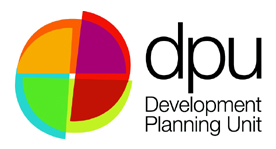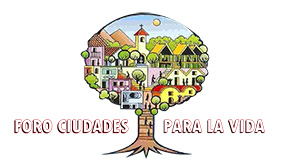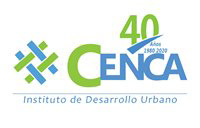Carlos Escalante Estrada is an urban architect with more than 30 years of professional experience in the field of urban planning and popular habitat. He has been a Consultant of the National Institute of Urban Development in Urban Planning, Productive Habitat and Development of Urban Environmental Capacities. Associate member of CENCA and Chairman of its Board of Directors of Coordinator of the Campaign for the Right to a Decent Housing for all of November, member of the Regional Action Committee of global campaigns promoted by the United Nations Habitat Agency, member from the AGFE Mission (Group of Experts against Forced Evictions) to the Dominican Republic and Argentina. Chairman of the Board and Executive Director of the Metropolitan Institute of Planning and Chairman of the Board of the Cadastral Institute of Lima of the same municipality. Co-researcher in Vulnerability and Risk projects with IDRC, IMP, CENCA, and DPU, currently participating in action research projects with DPU-PUCP KNOW project and GEMDev Grounded energy modelling of equitable urban development in the global South.
Architect, urban planner, and environmentalist with decentralist approach, IPCC AR6 lead author, chapter 12th. Doctorand at Amsterdam University, dissertation onKnowledge building in Metropolitan Water Governance in cities facing climate change, master’s in real estate management and construction (UPM, Madrid) with several postgraduate courses abroad. Lecturer and invited master’s teacher at several Universities in Peru and abroad. Founder and Executive Director of Cities for Life Foro inter-institutional network and Coordinator of the Global Covenant of Mayors for Climate and Energy in Peru. Consultant of national and international organisations. Former Principal Advisor of the Environmental Commission and Indigenous Communities in the Congress of Peru.
Published 5 books, 15 peer review (mainly English) articles, 12 book chapters and writes a monthly article at a governmental journal in Peru since 2014. Being a civil society activist uses mass media, journals, and social networks regularly. She is engaged in world-wide conferences, such as the Conference of the Parties (UNFCC), UNCSD - Rio + 20 and World Urban Forum and Habitat. Ashoka Fellow and Avina Leader with several other recognitions for her trajectory and policy development impact.
Silvia is an architect and urbanist with more than 30 years of professional experience. She has a masters degree in Architecture and various postgraduate diplomas. She is specialised in Integrated Cultural Heritage Management. She has undertaken research on urban housing, infrastructure and risks in collaboration with various institutions from Latin America and Europe. She is a researcher and project planner at the Centre for Research, Documentation and Demographic Advisory (CIDAP). She is a consultant and co-investigator on Economic and Social Research Council (ESRC) funded project Knowledge in Action for Urban Equality (KNOW) and Disrupting urban “risk traps” in collaboration with Development Planning Unit (DPU), UCL. She has also worked with various civil society organisations, including Slum Dweller International (SDI), Institute of urban development (CENCA) and ForoCiudades para la Vida (FCPLV) in varying.
Rita is an urban development planner and architect with over 19 years of international experience based at the Bartlett Development Planning Unit, UCL. Her research, postgraduate teaching and consultancy are closely linked and span across various countries (mainly Latin America and Africa). Her work focuses on environmental justice, urban risk, energy justice, urban regeneration, affordable housing, mapping and participatory methodologies. She undertakes action-research, training and capacity building working closely with communities, NGOs, local and national governments, and local researchers, to co-produce strategies towards just urbanisation.
Adriana is Prof of Development Planning and Urban Sustainability at the Bartlett Development Planning Unit, University College London, and has over 30 years of experience in research, postgraduate teaching and consultancy undertakings in 25 countries across the Global South. Through the lens of risk, sanitation, water, land, food and health, her work looks at the interface between everyday city-making practices and planned interventions and their capacity to generate transformative spaces, places, and social relations.




